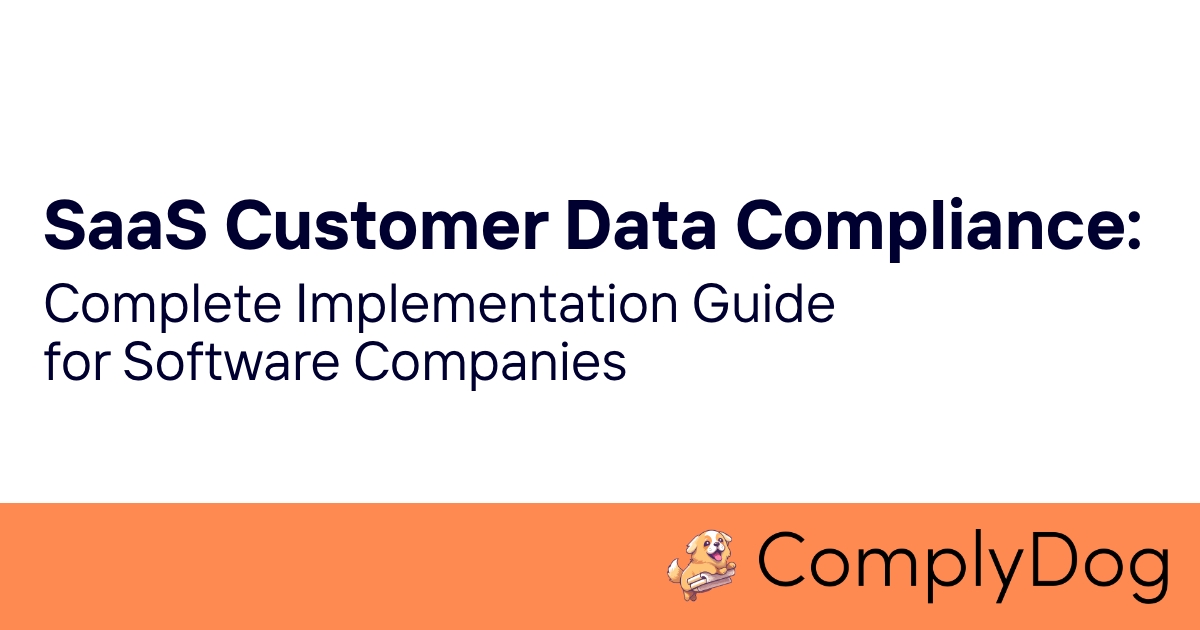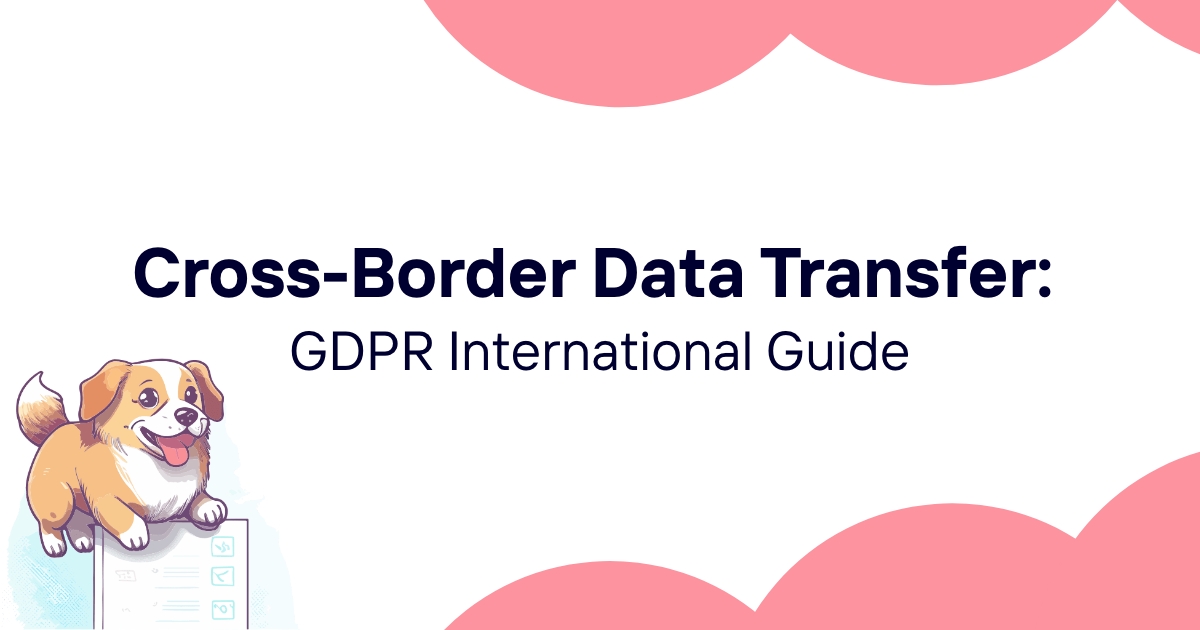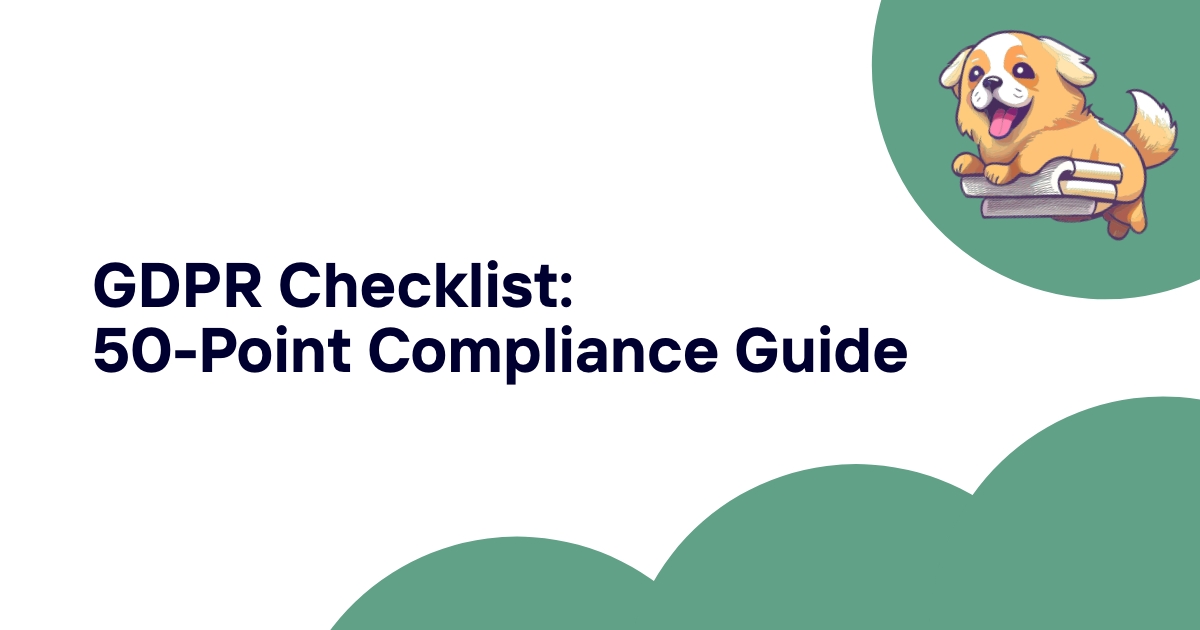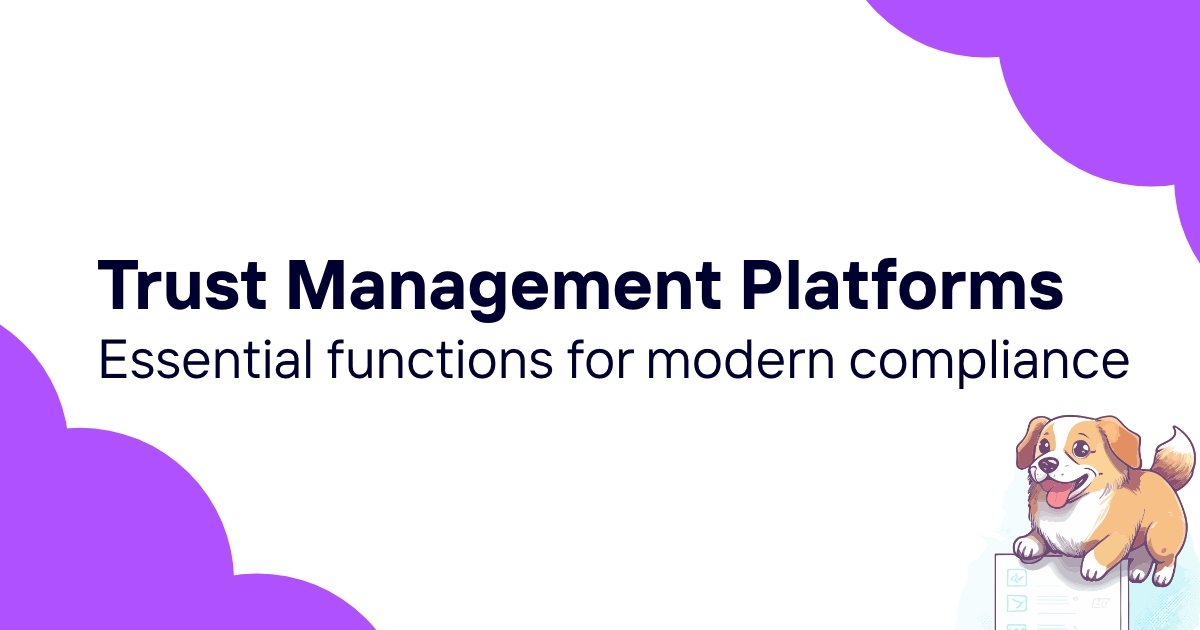SaaS companies sit at the center of a data privacy revolution that's fundamentally changing how businesses handle customer information. Your platform processes user accounts, behavioral analytics, support interactions, and business data that creates complex compliance obligations under privacy laws worldwide.
The challenge isn't just understanding privacy regulations - it's building compliance into SaaS architectures that scale globally while maintaining the user experiences that drive adoption and retention. Every feature you build, every integration you enable, and every analytics tool you implement creates potential privacy risks that need careful management.
SaaS customer data compliance has evolved far beyond simple privacy policies and cookie banners. Modern privacy laws give customers extensive rights to access, correct, delete, and control their data while imposing strict obligations on SaaS companies for consent management, data protection, and breach notification.
The companies that excel at SaaS compliance turn privacy protection into a competitive advantage. They win enterprise deals by demonstrating robust data governance, attract privacy-conscious customers through transparent practices, and avoid the regulatory penalties that can devastate SaaS businesses. ComplyDog helps SaaS companies build comprehensive compliance programs that protect customer data while supporting business growth.
SaaS Customer Data Collection and Processing
SaaS platforms collect customer data through multiple touchpoints and use it for various purposes that require clear legal basis and careful privacy compliance management.
Core SaaS Data Collection Points:
- Account registration - Email addresses, names, company information, role details, verification data
- Platform usage - Feature interactions, session data, performance metrics, error logs, configuration settings
- Billing and subscriptions - Payment information, billing addresses, usage data, upgrade patterns
- Support interactions - Help desk tickets, chat logs, phone conversations, screen sharing sessions
- Integrations and APIs - Third-party data imports, connected services, workflow automation data
Each collection point requires appropriate legal basis under privacy laws. Account registration might rely on contract performance, while detailed behavioral analytics could require legitimate interests analysis or explicit consent depending on the specific use case.
Legal Basis Selection for SaaS Processing:
GDPR requires specific legal basis for each data processing activity. SaaS companies often rely on multiple legal grounds depending on the purpose:
Contract performance works well for core platform functionality that customers expect as part of their service agreement. This includes account management, feature delivery, billing, and customer support.
Legitimate interests can support some analytics, security monitoring, and product improvement activities, but requires balancing tests that consider customer privacy rights and expectations.
Consent is necessary for optional features like marketing communications, detailed behavioral analytics for non-essential purposes, and data sharing with third parties for customer benefit.
Data Minimization in SaaS Design:
SaaS platforms often collect comprehensive user data "just in case" it proves useful later. Privacy laws require collecting only data necessary for specific, legitimate purposes.
Audit your data collection practices to identify information that's collected without clear business justification. Historical practices of capturing extensive user information might not meet current privacy standards for data minimization.
Purpose Limitation and Secondary Use:
SaaS companies frequently discover new uses for customer data as their platforms evolve. However, privacy laws restrict using data for purposes beyond those disclosed when it was originally collected.
Document the original purposes for all data collection and obtain appropriate consent or establish legitimate interests before using customer data for new purposes like product analytics, marketing, or business intelligence.
For insights on managing evolving data use cases, check out our legal SaaS compliance guide which addresses similar professional responsibility challenges.
SaaS Platform Data Subject Rights Implementation
SaaS platforms must provide customers with comprehensive rights over their personal data while maintaining platform functionality and protecting other customers' information.
Customer Access Rights Management:
Customers can request access to all personal data you hold about them, including account information, usage analytics, support interactions, and any inferences or profiles you've created. SaaS platforms need systems to compile comprehensive responses efficiently.
Design access systems that can aggregate customer data across all platform components including user accounts, analytics databases, support systems, and integrated services. Automated access tools reduce response time and ensure completeness.
Data Portability for SaaS Customers:
Data portability gives customers the right to receive their data in machine-readable formats and transfer it to other services. For SaaS platforms, this typically includes account data, user-generated content, configuration settings, and usage statistics.
Create portability exports that are genuinely useful for customers, not just technically compliant. Standard formats like JSON, CSV, or industry-specific formats help customers actually use their exported data with other services.
Deletion Rights and Platform Dependencies:
Customer deletion requests create complex challenges in SaaS environments where data might be shared across multiple tenants, integrated with third-party services, or required for platform security and integrity.
Implement deletion systems that can remove customer data while preserving platform functionality. Consider pseudonymization for data that must be retained for legitimate business purposes like fraud prevention or security monitoring.
Data Correction and Update Rights:
Customers can request correction of inaccurate personal data, but SaaS platforms must distinguish between factual errors and disagreements about analytics, usage metrics, or automated assessments that customers might dispute.
Build correction workflows that can handle both straightforward factual updates and more complex situations where customers disagree with platform-generated analytics or behavioral assessments.
Customer Data Portability for SaaS Companies
Data portability in SaaS environments requires careful balance between customer rights, competitive considerations, and technical feasibility while maintaining data security and integrity.
Comprehensive Data Export Design:
SaaS data portability should include all customer data that's technically feasible to export, organized in ways that make sense for customer use cases rather than internal database structures.
Consider what customers would actually want to port to competing services: account settings, user-generated content, workflow configurations, and historical data that provides ongoing value.
Format Selection for Portability:
Choose export formats that balance machine readability with practical usability. Industry-standard formats like JSON for structured data, CSV for tabular data, and standard file formats for documents work better than proprietary formats.
Document your export formats clearly so customers understand what they're receiving and how to use exported data with other services or for backup purposes.
Automated vs Manual Portability:
Large SaaS platforms need automated portability systems that can handle customer requests without manual intervention. However, complex enterprise configurations might require some manual review to ensure complete and accurate exports.
Design portability systems that automate standard exports while providing escalation paths for complex customer configurations that require manual attention.
Third-Party Data and Portability Limits:
SaaS platforms often integrate customer data with third-party services, creating situations where complete portability might not be technically or legally possible. Clearly document these limitations and provide alternatives where feasible.
Consider partial portability options that export customer-controlled data while explaining why certain integrated or derived data cannot be included in portability exports.
SaaS User Account and Profile Privacy
SaaS user accounts and profiles contain personal information that requires privacy protection while supporting platform functionality, personalization, and user experience optimization.
Profile Data Collection Practices:
SaaS user profiles often accumulate extensive personal information through optional fields, integration data, and behavioral observations. This data collection must respect privacy principles while supporting legitimate platform features.
Implement profile systems with granular privacy controls that let users choose what information to provide and how it's used for different platform features like personalization, analytics, and social functionality.
Account Security and Privacy Balance:
Strong account security often requires collecting and processing personal data for authentication, fraud prevention, and access control. Balance security needs with privacy minimization principles.
Design security systems that provide robust protection while minimizing privacy impact. Multi-factor authentication might require phone numbers, but comprehensive device fingerprinting might exceed privacy requirements.
User Preference Management:
SaaS platforms need comprehensive preference management systems that let customers control data collection, processing, and sharing across all platform features and integrations.
Create preference centers that provide meaningful choices about different types of data processing rather than all-or-nothing privacy options that force customers to choose between privacy and platform functionality.
Cross-Account Data Sharing:
SaaS platforms often enable data sharing between users for collaboration, workflow management, and social features. This sharing must respect individual privacy preferences while supporting legitimate collaborative features.
Implement collaboration features with appropriate privacy controls that let users choose what information to share in different contexts while maintaining default privacy protection.
SaaS Customer Support Data Protection
Customer support interactions involve processing sensitive customer information that requires privacy protection while supporting efficient customer service and platform improvement.
Support Ticket Privacy Management:
Customer support tickets often contain sensitive information about customer business operations, technical configurations, and personal circumstances that require confidentiality protection beyond standard customer data.
Implement support systems with appropriate access controls, retention policies, and confidentiality protection that support customer service while protecting sensitive information shared during support interactions.
Screen Sharing and Remote Access Privacy:
SaaS customer support often involves screen sharing, remote access, and other intimate access to customer systems that creates heightened privacy obligations and security requirements.
Design support tools with appropriate consent mechanisms, audit logging, and access controls that support effective customer service while protecting customer privacy during intimate support interactions.
Support Knowledge Base and Training:
Customer support teams need training on privacy requirements and access to knowledge bases that help them handle customer data appropriately during support interactions.
Develop support training programs that address privacy obligations, customer rights management, and appropriate handling of sensitive information that customers share during support interactions.
Support Analytics and Quality Management:
Support quality management and analytics systems often analyze support interactions to improve service quality and identify training needs. This analysis must respect customer privacy while supporting legitimate service improvement.
Implement support analytics with appropriate anonymization, consent mechanisms, and access controls that provide service improvement insights while protecting customer privacy in support interactions.
SaaS Analytics and Usage Data Compliance
SaaS platforms rely heavily on analytics and usage data for product development, customer success, and business optimization, but this comprehensive tracking creates significant privacy compliance challenges.
Product Analytics Privacy Framework:
SaaS product analytics collect detailed behavioral data about user interactions, feature usage, and performance metrics that reveal intimate details about customer business operations and user behavior.
Implement product analytics with clear purpose limitation and data minimization principles. Distinguish between analytics necessary for platform operation versus optional analytics for product development or business intelligence.
Customer Success Analytics:
Customer success teams use analytics to identify engagement patterns, predict churn, and optimize customer experiences. This analysis often involves detailed behavioral profiling that requires privacy consideration.
Design customer success analytics with appropriate consent mechanisms and transparency about how behavioral data is used to support customer success and retention efforts.
Usage-Based Billing Analytics:
SaaS platforms with usage-based billing models need comprehensive usage tracking for accurate billing while minimizing privacy impact of detailed usage monitoring.
Implement usage tracking that collects necessary billing information while avoiding unnecessary behavioral analytics that might exceed privacy requirements for billing purposes.
Predictive Analytics and Automated Decisions:
SaaS platforms increasingly use predictive analytics for features like automated scaling, security threat detection, and customer experience optimization. These automated decisions might require additional privacy protections.
Document predictive analytics systems and provide transparency when automated decisions significantly affect customer experiences or account management.
Customer Data Lifecycle Management in SaaS
SaaS platforms must manage customer data throughout its entire lifecycle from initial collection through eventual deletion while respecting privacy requirements and supporting legitimate business needs.
Data Retention Policy Development:
SaaS data retention policies must balance customer privacy rights with legitimate business needs for customer service, security monitoring, legal compliance, and business continuity.
Develop retention schedules that consider the actual business value of different data types over time. Historical usage analytics from years ago might not provide current business value, making long retention difficult to justify.
Automated Data Lifecycle Management:
Large SaaS platforms need automated systems that can manage data retention, archival, and deletion according to policy requirements without requiring manual intervention for every customer account.
Implement automated lifecycle management with appropriate safeguards and audit capabilities that ensure proper data handling while providing visibility into data lifecycle activities.
Customer Account Termination:
When customers terminate SaaS accounts, their data must be handled according to privacy requirements while considering legitimate business needs for dispute resolution, fraud prevention, and regulatory compliance.
Design account termination procedures that respect customer deletion rights while protecting legitimate business interests and other customers' data that might be intermingled in collaborative features.
Data Breach and Incident Response:
SaaS platforms need comprehensive incident response procedures that address privacy breach notification requirements while supporting business continuity and customer communication.
Develop incident response plans that can handle privacy breaches efficiently while meeting regulatory notification timelines and customer communication requirements.
Ready to turn SaaS compliance into a competitive advantage? Use ComplyDog and demonstrate your commitment to customer data protection with a comprehensive compliance portal that builds trust with customers and supports business growth.


















